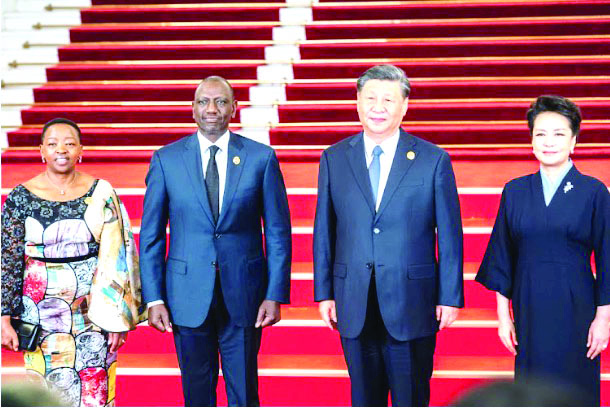Lessons for us as China Republic turns 75 years

As the People’s Republic of China marks its 75th anniversary on October 1, the significance of this milestone extends well beyond China’s borders, resonating deeply with nations like Kenya.
Over the past few decades, China has emerged as one of Kenya’s most important economic partners, with the relationship growing stronger through trade, infrastructure development, and diplomatic cooperation. This anniversary offers an opportunity for Kenyans to reflect on this partnership and the potential it holds for Kenya’s future development.
Kenya’s and China’s struggles for independence share a common feature. The fight was driven by a deep desire to rid their land of foreign control and exploitation. In Kenya, the resistance was mainly against British colonialism.
Similarly, China fought against Japanese occupation and Western imperialism during the first half of the 20th century, aiming to reclaim sovereignty from foreign powers that had established spheres of influence across the country.
Kenya-China ties have grown exponentially since diplomatic relations were established in 1963. From infrastructure projects such as the Standard Gauge Railway (SGR) to affordable housing initiatives and investments in roads and ports, China’s influence on Kenya’s economic landscape is undeniable.
For Kenya, this anniversary is not just a celebration of China’s national achievements but also a recognition of the transformative impact that Chinese investment has had on the nation’s infrastructure and development goals.
Kenya has benefited immensely from China’s Belt and Road Initiative, which has connected African countries to China’s global trade network.
The SGR, funded by Chinese loans, is one of the most visible symbols of this partnership, linking Kenya’s coastal city of Mombasa to the capital Nairobi and beyond. It has opened new economic opportunities, improved logistics, and promoted trade both within Kenya and the wider East African region.
Such projects underscore the growing importance of Sino-Kenyan relations in realising Kenya’s Vision 2030 development blueprint.
Moreover, China’s approach to economic partnerships – emphasising mutual respect, non-interference in domestic affairs, and a focus on practical results – has been well-received by Kenya.
In contrast to traditional Western models of aid, China’s development assistance has often been characterised by speed, scale, and flexibility. This aligns with Kenya’s aspirations for rapid modernisation, industrialisation, and job creation.
As the PRC celebrates its 75th anniversary, Kenya can also draw valuable lessons from China’s remarkable rise from a developing nation to a global powerhouse. China’s focus on long-term strategic planning, investment in education, and technological innovation has transformed its economy and lifted hundreds of millions out of poverty. These are lessons Kenya can adopt to enhance its own development and poverty eradication.
Additionally, the PRC’s emphasis on strengthening South-South cooperation highlights the importance of solidarity among developing nations. For Kenya, this means greater opportunities for collaboration in agriculture, health, education, and trade, as China continues to expand its influence in Africa.
The recent partnership agreements in agriculture, where China has committed to providing technical support and innovation to boost Kenya’s food security, are just one example of how the relationship is evolving.
This anniversary is more than just a celebration of China’s progress; it is an important moment for Kenya to reflect on the strategic partnership that has developed between the two countries.
As Kenya continues to modernise and grow, its collaboration with China will play a critical role in shaping the nation’s future.
By learning from China’s experiences and building on the strong foundation already laid, Kenya can continue to advance its development agenda and create a prosperous future for its people.
Ultimately, the anniversary provides a moment for Kenya to evaluate how best to leverage its relationship with China for mutual benefit while ensuring that the country’s economic sovereignty and future development are safeguarded.
— The writer is a PhD student in International Relations












